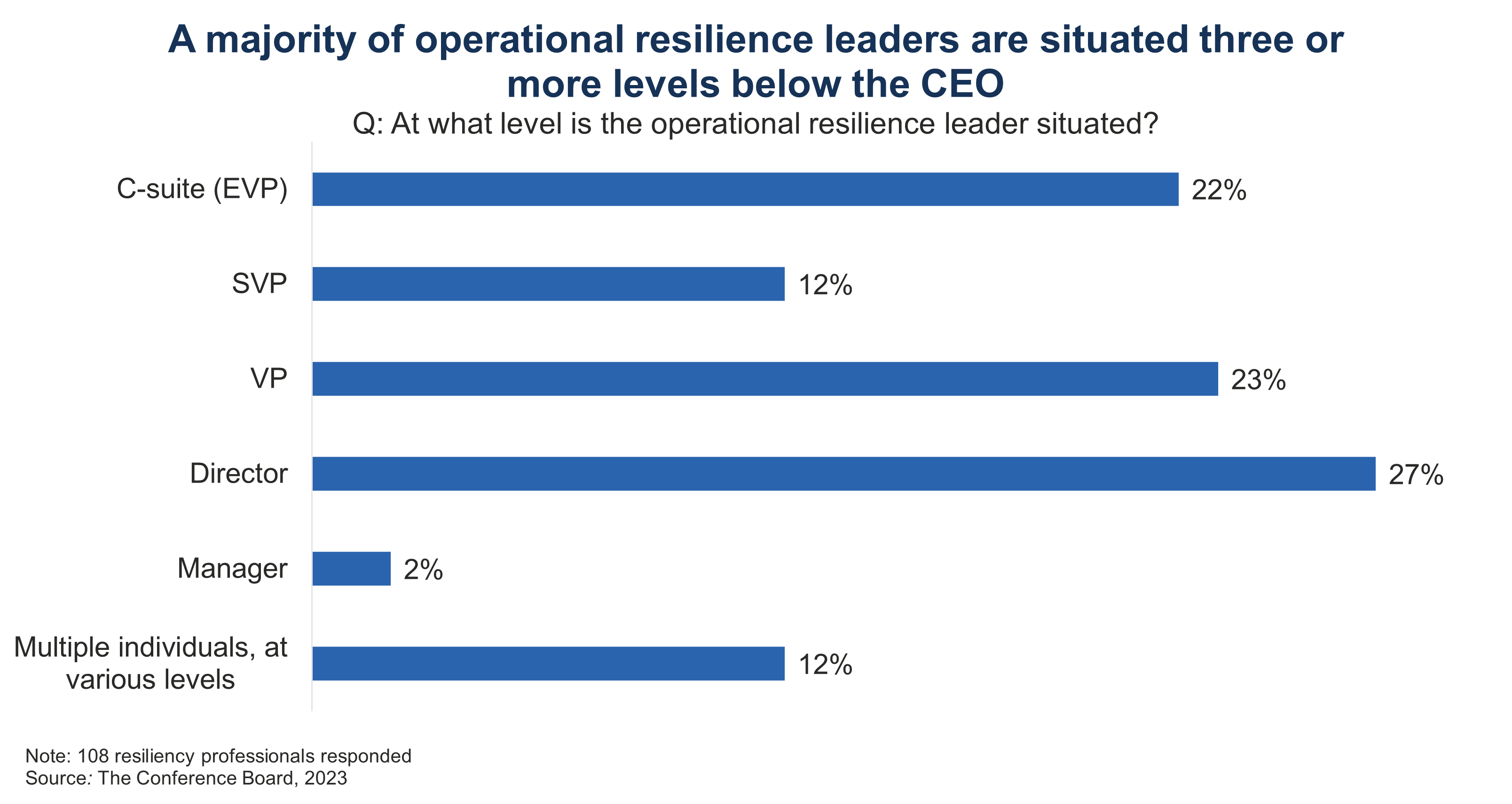
March 29, 2023 | Quick Take
Eighty-nine percent of companies say the level of risks that can disrupt a company’s operations is increasing and 86 percent say that operational resilience is a strategic priority. But at 70 percent of companies, the individual with primary responsibility for resilience sits three to four levels below the CEO, according to a recent survey by The Conference Board,.
Insights for What’s Ahead: In addition to ensuring that operational resilience—the capability to plan for, respond to, and recover from significant disruptions that impair the ability to deliver products and services—is managed at the appropriate level, CEOs should consider this capability as a competitive advantage. This requires taking a holistic approach, from the design of operations and supply chain, through risk assessment and management, to crisis management and business continuity, through recovery and recording lessons learned.

While those involved in crisis management and business continuity planning often focus on hard assets (buildings, equipment, and technology) and policies, procedures, and playbooks, the key to success rests with people. That means:
February 06, 2026 | Report
December 10, 2025 | Report

September 24 - 25, 2026 | (New York, NY)
